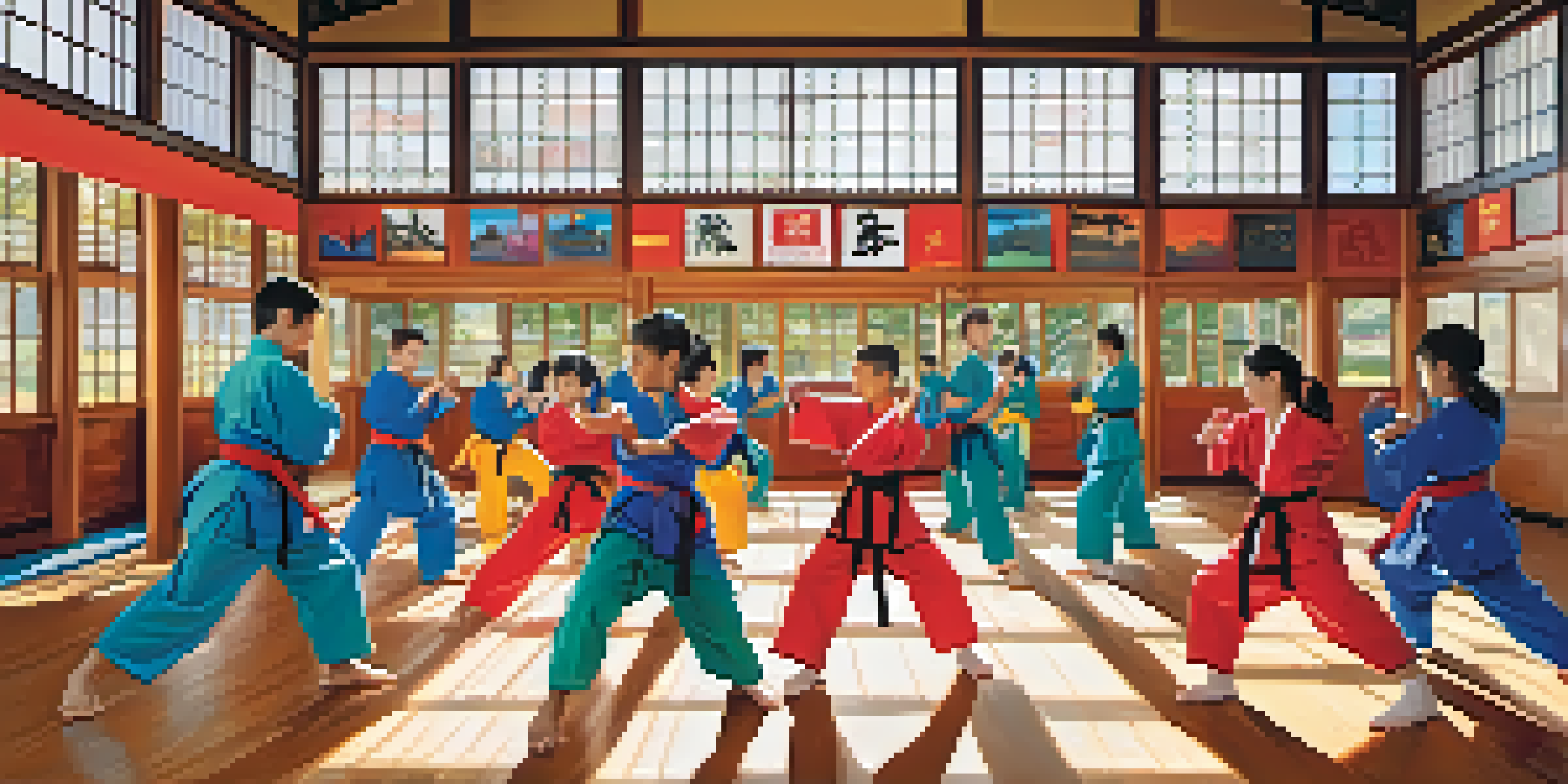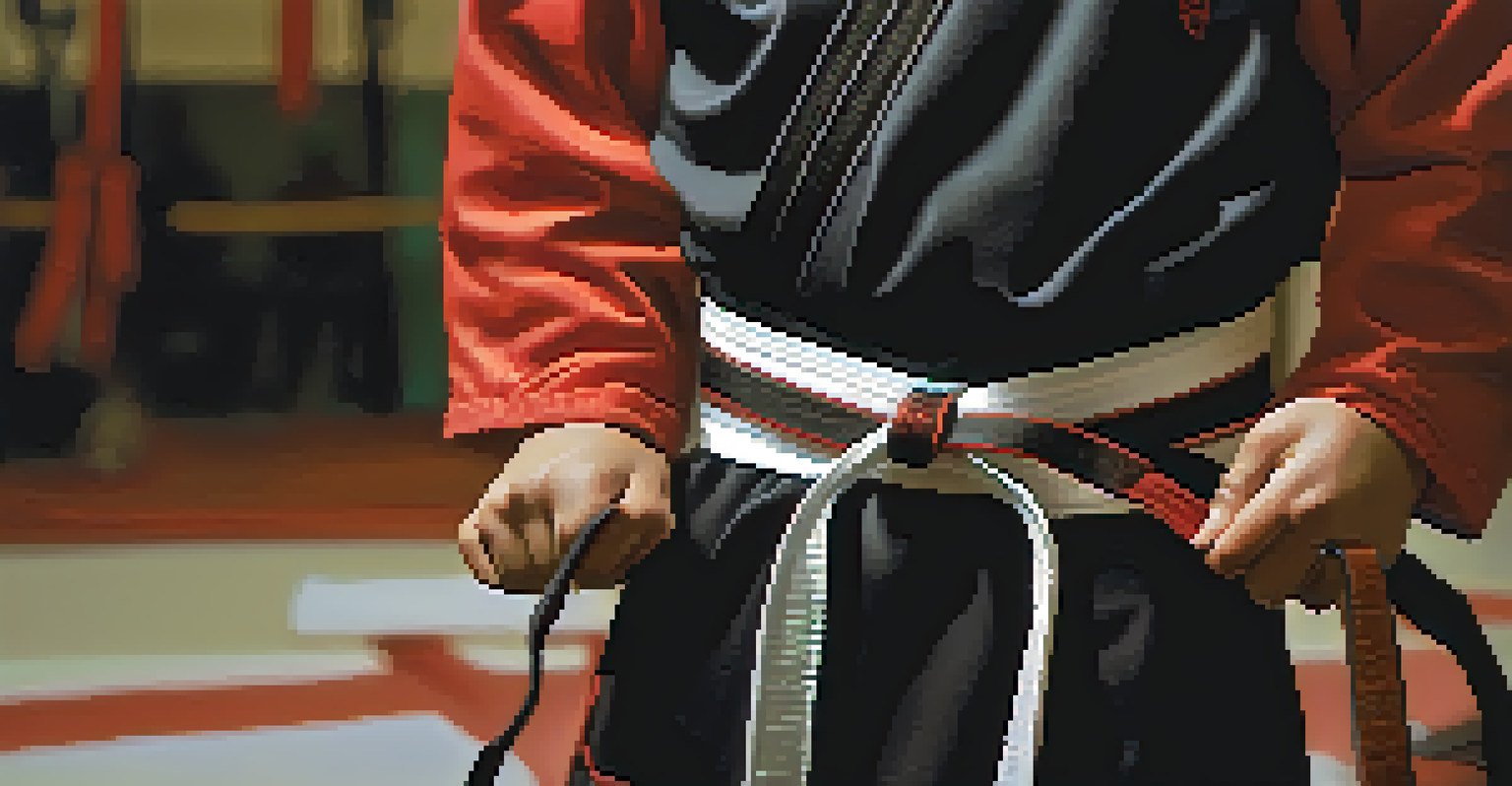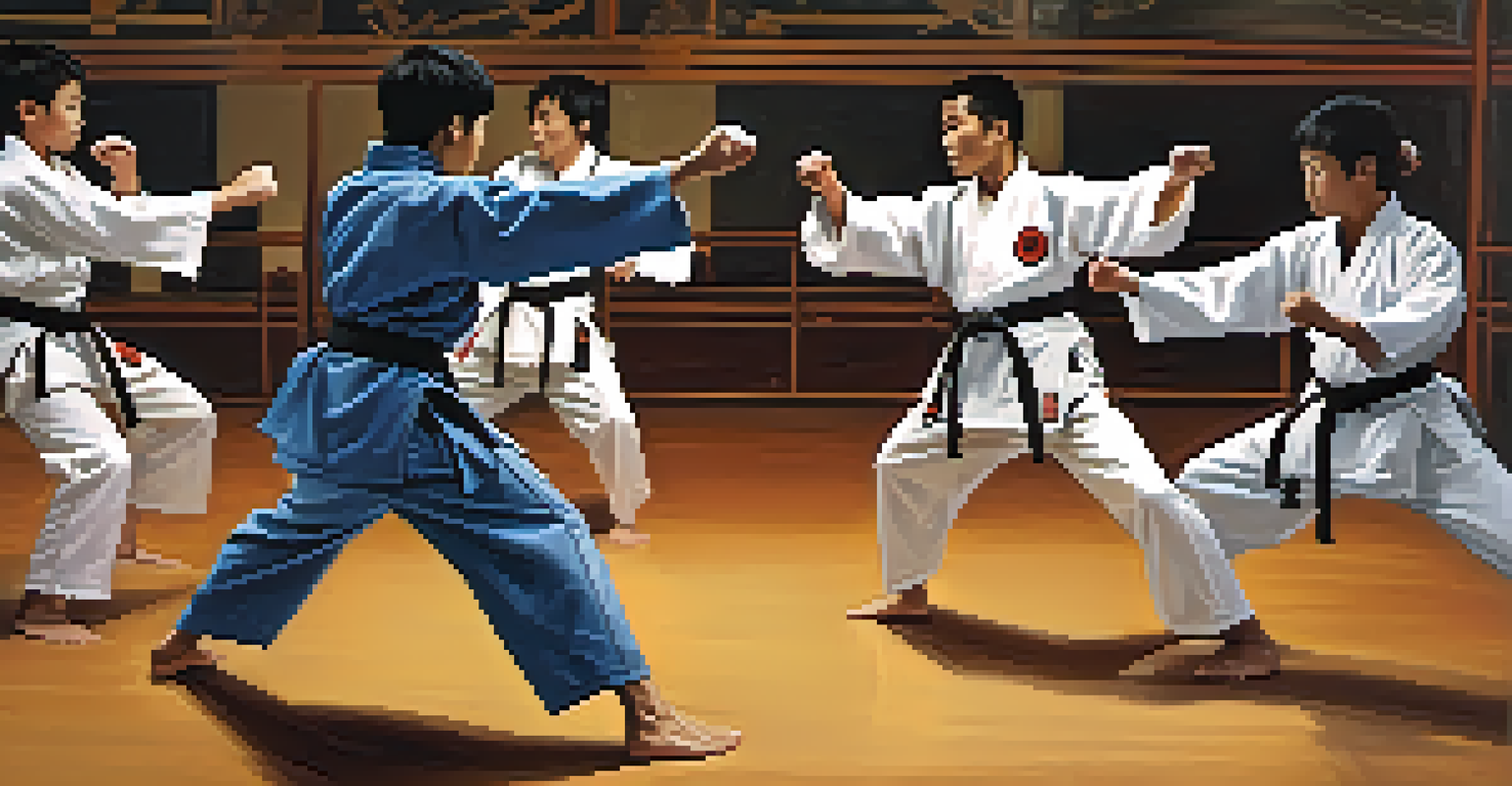Building Confidence in Students through Martial Arts Training

Understanding Confidence in Students and Its Importance
Confidence is a crucial element in a student's development, influencing their academic performance and social interactions. When students believe in themselves, they are more likely to participate in class discussions, tackle challenges head-on, and develop resilience. Lacking confidence, however, can lead to avoidance behaviors and a fear of failure.
Confidence is contagious. So is lack of confidence.
Martial arts training offers a unique opportunity to build this confidence through structured practice and discipline. As students learn new skills and techniques, they also learn to trust their abilities and judgment. This newfound self-assurance can extend beyond the dojo, positively impacting their everyday lives.
Moreover, confidence gained from martial arts is not just about physical prowess but also mental toughness. Students face challenges in their training, and overcoming these obstacles fosters a sense of achievement that contributes significantly to their self-esteem.
The Role of Discipline in Martial Arts Training
Discipline is at the heart of martial arts, shaping students into focused and determined individuals. It requires commitment to regular practice, attention to detail, and the ability to follow instructions. As students immerse themselves in this disciplined environment, they learn the value of persistence and hard work.

This discipline translates into other areas of life, encouraging students to apply the same commitment to their studies and personal goals. For instance, a student who practices martial arts regularly may find that they are more organized and dedicated to completing homework assignments. This crossover effect can significantly enhance their academic performance.
Building Confidence Through Challenge
Martial arts training fosters confidence as students overcome challenges, enhancing their self-belief and resilience.
Furthermore, the structured nature of martial arts training instills a sense of responsibility, as students are expected to uphold their commitments. This accountability nurtures self-discipline, making it easier for them to tackle challenges in both martial arts and everyday life.
Building Resilience Through Challenge and Achievement
Martial arts training is filled with challenges, from mastering new techniques to sparring with opponents. Each challenge presents an opportunity for students to push their limits and develop resilience. By learning to face these challenges head-on, students gain a stronger belief in their capabilities.
Success is no accident. It is hard work, perseverance, learning, studying, sacrifice, and most of all, love of what you are doing or learning to do.
As they overcome obstacles in their training, students experience a sense of accomplishment that fuels their confidence. For example, earning a new belt or successfully completing a difficult drill can be a major boost to their self-esteem. These achievements serve as tangible reminders of their hard work and dedication.
Moreover, the journey of progression in martial arts teaches students that failure is part of the learning process. By understanding that setbacks are not the end, they become more adaptable and willing to face future challenges with determination.
Promoting Social Interaction and Teamwork
Martial arts classes often involve group activities, fostering a sense of community among students. This social interaction helps build friendships and creates a supportive environment where students encourage one another. As they train together, students learn the importance of teamwork and collaboration.
Engaging with peers in a martial arts setting can also help shy or introverted students come out of their shells. The shared experience of learning and progressing together creates bonds that can enhance their social skills. Over time, these interactions contribute to a more confident and socially adept individual.
Discipline Enhances Life Skills
The structured environment of martial arts instills discipline, encouraging students to apply commitment and focus in all areas of life.
Additionally, working in pairs or teams during training can teach students valuable lessons about communication and respect. They learn to listen to others, provide constructive feedback, and celebrate each other's successes, all of which are essential skills in any social setting.
Fostering a Positive Mindset and Self-Image
Martial arts training emphasizes respect, humility, and personal growth, all of which contribute to a positive mindset. Instructors often remind students that the journey is just as important as the destination, encouraging them to focus on their progress rather than perfection. This mindset shift can have profound effects on how students view themselves.
As students embrace their unique strengths and weaknesses, they develop a healthier self-image. This acceptance allows them to approach challenges with a growth-oriented perspective, reducing the fear of failure. For instance, a student who previously shied away from competition may now view it as a chance to learn and grow.
Furthermore, martial arts teaches students to set realistic goals for themselves. By breaking down larger objectives into smaller, achievable steps, they experience consistent success, which reinforces their confidence and self-belief.
The Impact on Academic Performance and Behavior
The confidence and discipline gained from martial arts training can lead to improved academic performance. Students who feel good about themselves are more likely to engage in their studies and participate actively in class. This increased engagement often translates to better grades and a more positive attitude towards learning.
Additionally, martial arts training can positively influence behavior in the classroom. Students who practice self-control and respect in the dojo are more likely to carry those values into their everyday lives. This can result in fewer disciplinary issues and a more harmonious learning environment.
Promoting Social Skills and Teamwork
Group activities in martial arts classes encourage social interaction, helping students develop teamwork and effective communication skills.
Moreover, the focus on respect and teamwork in martial arts can improve relationships with teachers and peers. Students learn to communicate effectively and resolve conflicts peacefully, which contributes to a more supportive and collaborative school atmosphere.
Encouraging Lifelong Skills Beyond the Dojo
The skills learned through martial arts extend far beyond the training mat. The confidence, discipline, resilience, and teamwork that students develop can impact their lives long after they leave the dojo. These qualities can shape their futures in various ways, from personal relationships to career paths.
For instance, the ability to set and achieve goals can lead students to pursue higher education and career opportunities with confidence. The social skills they acquire can help them build strong networks and maintain healthy relationships throughout their lives. This holistic development is one of the most significant benefits of martial arts training.

Ultimately, martial arts instills a philosophy of continuous personal growth. Students learn that the journey of self-improvement is ongoing, encouraging them to seek new challenges and opportunities throughout their lives.